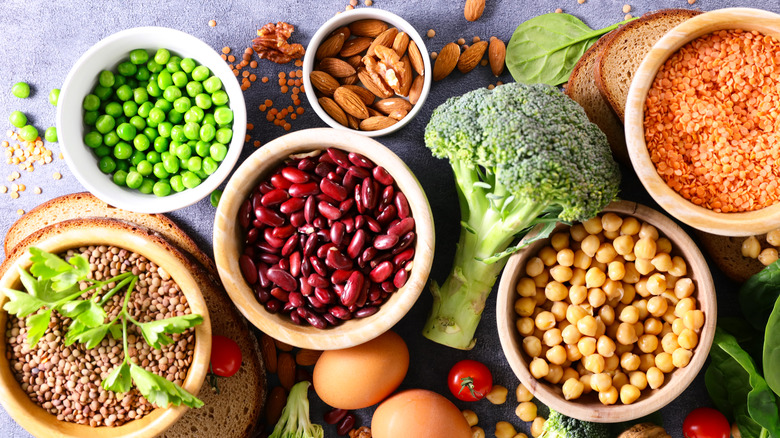The Real Reason Our Eating Habits Need To Change
According to the Food and Agriculture Organization (FAO) of the United Nations, approximately one in three people in the world went without enough food in 2020. The challenges of the COVID-19 pandemic and the ongoing food crisis have shown that proper nutrition is not a reality for many people around the globe. Leaders from African nations are already warning that the toll of grain shortages on the continent may prove to be more deadly than the pandemic. With forecasts from the United Nations also projecting that the world's population will grow by another 2 billion people by 2050, it brings up the question of how to feed a growing population when we are already struggling.
Solutions to feeding the world are also complicated by the looming threat of climate change. The Environmental Defense Fund notes that climate change is likely to continue increasing extreme weather, like drought and flooding, that can decimate harvests. At the same time, climate change is being affected by the increased carbon output of some means of food production and transportation.
These challenges and threats may feel daunting, but luckily, there are some solutions out there that may help to feed a growing population.
Human diets need to change
One possible solution is education. If consumers are going to help combat climate change and promote manufacturers to do their part as well, they need to be informed. That's why some countries are already researching carbon food labels. The same way that nutrition labels allow consumers to make informed decisions about their health, carbon food labels would show the carbon footprints of the food and packaging that they are purchasing (via The Washington Post).
The ongoing war in Ukraine has also shown that our food systems are susceptible to a lack of biodiversity (via The New York Times). To combat this, some are proposing that we turn to more ancient grains like millet, sorghum, buckwheat, and amaranth. This diversity can help when some crops fail or are challenged by supply chain issues. In fact, the United States Department of Agriculture has already approved Sorghum for American school lunch programs (via PR Newswire).
Another major contributor to climate change is a meat heavy diet. According to the Australian Department of Agriculture, Fisheries, and Forestry, population growth caused meat consumption to increase 54% in the twenty years leading up to 2018. The New York Times notes that the biggest dietary change a concerned person can make to help this is to reduce the amount of dairy and red meat that they consume. Going vegan would create an even larger impact because foods like nuts, grains, fruits, and vegetables are more efficient means of obtaining nutrition.
With some flexibility and optimism, humankind just might be able to feed its future.

